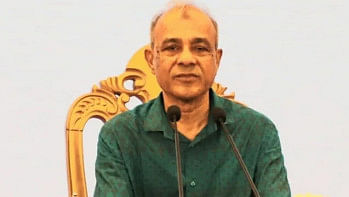Dhaka, Delhi eye tangible progress
Bangladesh and India have agreed over stepping up efforts to make "tangible progress" in fast-tracking a resolution on pending bilateral issues.
Foreign Secretary of Bangladesh Mijarul Quayes yesterday said it was necessary for both countries to "fast track implementation of the decisions" taken during the visits of the two prime ministers to New Delhi in January, 2010, and to Dhaka in September, 2011.
Quayes was speaking to the media in Gurgaon, a satellite town of Delhi, after he met Indian Foreign Secretary Ranjan Mathai on the sidelines of Indian Ocean Rim-Association for Regional Cooperation (IOR-ARC) conference.
Mathai is likely to visit Dhaka either by November-end or in the first week of December, Quayes said.
He said Mathai was “keen on making some tangible progress during his visit” and that there was no lack of commitment from either side to resolve the pending issues.
They discussed for nearly an hour with particular focus on the pending issues. Quayes declined to specify the issues.
However, sources said among the issues was the signing of Teesta water-sharing deal, which was shelved at the last moment during Indian Prime Minister Manmohan Singh's visit to Dhaka.
Other issues include developing infrastructure relating to border trade and movement of people across the northern part of Bangladesh and West Bengal.
Quayes also told newsmen that the proposed Deputy High Commission of Bangladesh in Mumbai, India's commercial capital, would soon be opened. Dhaka has also proposed to India of opening Assistant High Commissions in Guwahati and Chennai, and upgrading status of the consulate in Agartala, the capital of Tripura, to an Assistant High Commission.
FM-LEVEL MEET
Quayes said Bangladesh was awaiting a response from Delhi about the possible date of the second edition of the foreign minister-level meetings of India-Bangladesh Joint Consultative Commission to be held in Dhaka.
External Affairs Minister Salman Khurshid will lead the Indian delegation at the meet. The first meeting was held in New Delhi in June this year.
PIRACY A BIG THREAT
Earlier, addressing the IOR-ARC, Quayes said piracy in the Indian Ocean had become a matter of great concern for all due to its high human and economic loss.
"The extent of their [pirates'] reach signifies that it will be difficult to curb the threat without a concerted regional, trans-regional and international campaign,” he said, and called for promotion of shipping services among the 19 countries of the IOR-ARC.
"We need to work towards establishment of a free and non-discriminatory regime by which the national flag carriers and qualified sailors of one member state can have easy access to the markets of the others,” he added.
As immediate measures against piracy, Quayes mentioned of effective port administration, well-equipped enforcement agency, judicial and legislative capacity-building as well as counter-piracy measures in the ships.
"However, in the long run, creation of a good order in the sea will be needed to prevent illegal, unregulated and unreported fishing activities.”
Citing that the livelihood of 30 million Bangladeshi people is linked with fishing, the Bangladesh foreign secretary said the country was taking measures for ensuring safety and security of these fishermen against robbery or abduction, and working with its neighbouring countries “to ease the process of repatriation of fishermen who get stranded due to natural disasters”.

 For all latest news, follow The Daily Star's Google News channel.
For all latest news, follow The Daily Star's Google News channel. 



Comments